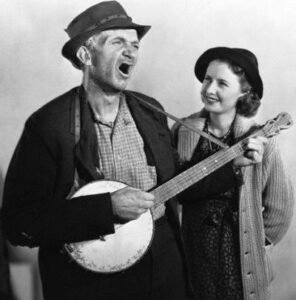
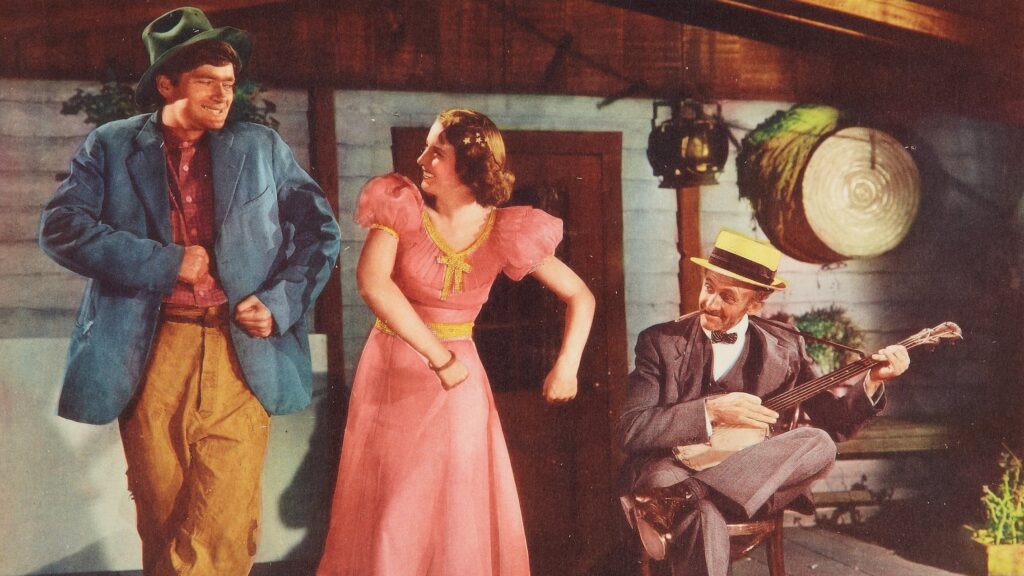
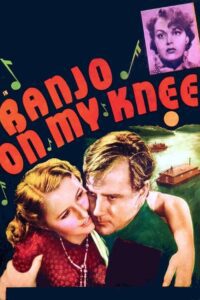
Banjo on My Knee, released in December of 1936 by 20th Century Fox, is an early example of Hollywood’s cinematic approach to ‘poor folk,’ a light-hearted investment that skips hardship and struggle for more easygoing topics like romance and entertainment.
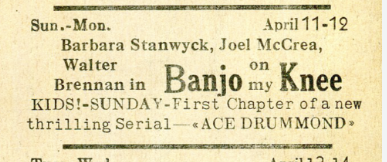
Love it or hate it, over the next five decades the film industry would crank out various versions of the noble poor, be they honorable river folk, unenlightened hillbillies, expert backwoodsman/trackers, or hard-working settlers. The film also combines elements of the minstrel show, with all of the race-related cliches attached to that genre.
Notably, the film would feature character actors associated with this same Hollywood sub-genre: Walter Brennan and Buddy Ebsen to name two.
‘Banjo on My Knee’ is listed as a ‘romance/musical.’ The romance involves two young actors – both in their early 30s — who would enjoy long careers, Joel McCrea and Barbara Stanwyck. They are ‘shantytown’ inhabitants, which means they work or live near the river, in this case the great Mississippi. Stanwyck is a ‘working girl’ who sings and dances, and McCrea is a fisherman. They are married in the opening scenes, but a series of contrived circumstances keep them apart until the ultimate happy ending.
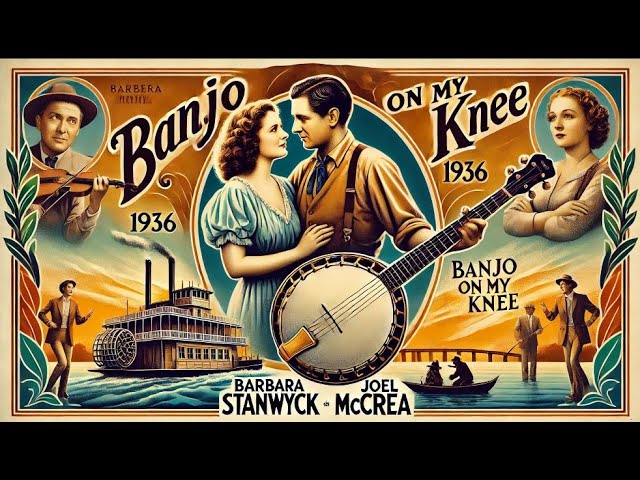
In true Hollywood fashion, all the poor folk are good natured and happy-go-lucky — grandma smokes a pipe — and most of their counterparts are big city types with suspect motives. In between is a lot of Hollywood hokum. McCrea is constantly punching out perceived competitors for Ms. Stanwyck’s heart.
The two stars come off second best to character actors Brennan and Ebsen. Both would be featured in television series during the 1950’s and 60’s that showcase basically the same characters. Walter Brennan — in all his toothless glory — would star as grandpa in ‘The Real McCoys’, and Ebsen would lead his now famous clan in ‘The Beverly Hillbillies.’ In the film, Brennan plays Joel McCrea’s father, although he is in fact only 11 years older. Ebsen dances solo in what appears to be an early version of hiphop street dancing. As Brennan remarks early in the film, “Pour us a little more corn, buddy.”
